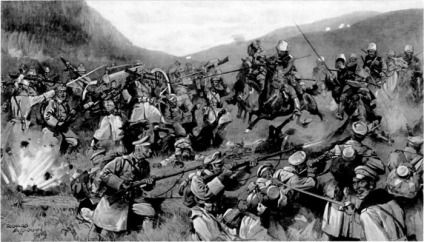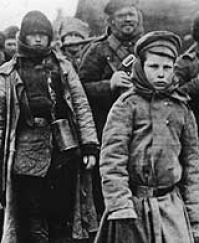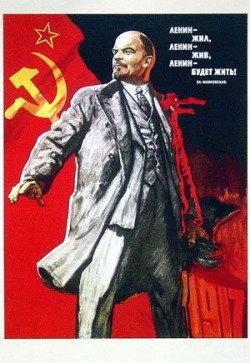The Russian Revolution

When Russia entered World War 1 in 1914 it had launched its first offensive in August of the same year against Germany in East Prussia. The Russian First Army aimed straight into the heart of East Prussia which was held by the German Eight Army, while the Russian Second Army's purpose was to cut off the enemy's line of retreat. Once Eastern Prussia was secure, the Russian Ministry of War planned to march straight on Berlin.
Military disasters at the Masurian Lakes and Tannenburg greatly weakened the Russian Army in the initial phases of the war. This however did disrupt the Schliffen plan and prevented the fall of Paris. These great defeats had a terrible impact and made the Russian army retreat. Soon Poland, Lithuania, and most of Latvia were lost to the Germans. The German army had advanced to just 200 miles from Moscow. The morale in the army was low and desertion became a growing problem. The Russians had poor food supplies and soldiers started to lose hope. Back at home food was becoming a real problem as well. In 1915 emperor Nicholas decided to take command of the army into his own hands. While the Duma had advised him not to do so, he still headed out to the Eastern Front, leaving Empress Alexandra home. This was a disastrous move as it left her in control. While the Russian army was suffering heavy losses, Rasputin's influence grew. Gregory Rasputin was a monk who was believed to possess the emperor's only son Alexis who was dying of hemophilia. He was now controlling Petrograd with Alexandra and was opposing the Duma. In December 1916 Rasputin was assassinated by Felix Yusupov.

The losses Russia suffered in the war were catastrophic. Between 900,000 and 2,500,000 Russians were killed. At least 1,500,000 Russians and possibly up to more than 5 million Russians were wounded. Nearly 4,000,000 Russian soldiers were held as POWs (Britain, France and Germany had 1.3 million POWs combined). Economically Russia was devastated. 8,000,000,000 rubles in war debts were outstanding, strangling the national economy of its breath. The gold reserves were nearly empty and revenues were exceedingly low while reconstruction costs were huge. Russia was on the verge of complete collapse.
In October 1916, rail workers in Petrograd decided to go on strike about their working conditions and Duma had dispatched soldiers from the front to force the strikers to go back to work. They got alarmed when the soldiers had joined the rail men. The Duma had underestimated the situation. This underestimation had brought a major disaster later the same year.
The Russians did not plan to overthrow the emperor. It happened as a result of hunger, cold and lack of action from the government. People had to burn furniture just to heat their homes. Later on March 12th people in line in a bakery started a small riot. In response the police tried to break them up by firing at them. That was a great error because soon many people went on the streets to join the growing riot. General Habalov who was the military governor of the city, was ordered by the emperor Nicholas himself to restore order. In response Habalov had dispatched the elite Volhynian Regimen. To his surprise they had joined the strikers. Together they had disarmed the police and freed prisoners from the nearby prisons. It simply happened because the government had taken people for granted and had driven them to rebellion.

The Duma failed to see the coming storm and as a result, a small disturbance at the bakery had turned into a full scale riot. Discipline was breaking down at the front and thousands of soldiers were deserting every day. The growing Bolsheviks had advised soldiers to shoot their officers and not to march on Berlin, but instead come back home successfully pulling Russia out of the war. By the end of 1917, the Bolsheviks led by Lenin had taken power in the major cities of Russia, overthrown the Emperor and introduced communist rule in those areas it controlled establishing the world’s first communist government.
SOURCES USED
http://www.historylearningsite.co.uk/russia_and_world_war_one.htm
http://www.marxists.org/glossary/events/w/ww1/russia.htm
http://www.bbc.co.uk/history/worldwars/wwone/

